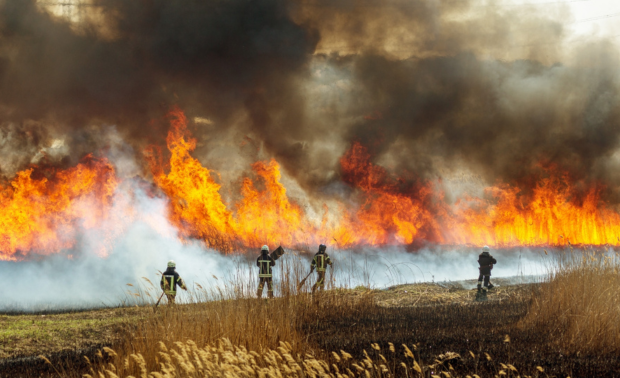Due to the physical, psychological, and socioeconomic consequences of a cancer diagnosis and treatment, people with cancer are especially vulnerable during extreme weather events like hurricanes, tornadoes, and wildfires, which are becoming more common and damaging with climate change. A new national study led by ACS and Harvard T.H. Chan School of Public Health researchers finds patients whose facility was impacted by a wildfire disaster during recovery from lung cancer surgery had longer length of stay (LOS) than similar patients treated at the same facility, but at times when no disaster occurred. The findings were published March 11 in the Journal of the National Cancer Institute (JNCI).
“These data are critical as there are currently no guidelines for protecting the health and safety of patients recovering from lung cancer surgery during wildfires in the United States,” said Dr. Leticia Nogueira, scientific director, health services research, and lead author of the study. “In the absence of guidelines, clinicians might resort to improvisational strategies, such as extending post-operative length of stay to support surgical recovery and better protect the health and safety of patients during wildfires.”
“Future studies should evaluate whether extended hospital stay improves surgical care outcomes during disasters,” Nogueira added. “Also, these findings should be considered for disaster preparedness guidelines tailored to vulnerable patient populations and contextual adjustments to quality care metrics.”
ACS researcher Dr. Robin Yabroff also contributed to the study.
Like and share this news on X.


